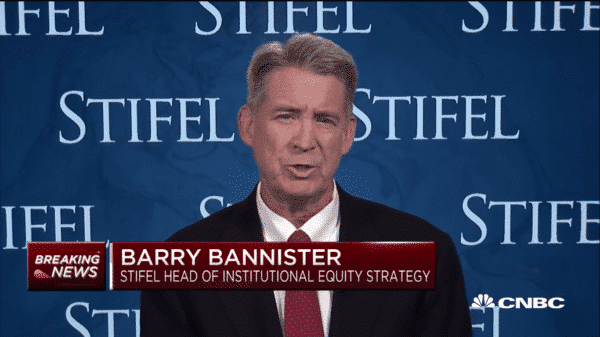

That’s the assessment from investment bankers Stifel and UBS on Thursday as the markets keep investors guessing during these tumultuous weeks within the COVID-19 pandemic.
The number of COVID-19 cases have risen to 772 across Canada on Thursday with ten confirmed deaths while in the United States the case count passed 10,000, essentially doubling in two days and 100 times the number accounted for on March 1.
With the infection’s peak in both countries still to come, Canadians and Americans continue the process of staying at home and self-quarantining where necessary, while in the markets stocks are still yo-yoing, with some seeing double-digit rises and falls daily.
Major indices were up on Thursday, including the S&P/TSX Composite up 3.8 per cent and the tech-heavy Nasdaq up 2.3 per cent. The S&P 500 and Dow Jones were up 0.5 and 1.0 per cent, respectively.
And while it’s been the fastest bear market on record, with a 30 per cent drop in value since mid-February’s highs, there are signs the floor is being found, said Barry Bannister, head of institutional equity strategy at Stifel.
“I think we're very, very close to either a low or a powerful counter trend rally,” Bannister said in conversation with CNBC on Thursday. “Some of the things that I look at are the resistance of the VIX, the high yield spreads blowing out above the 2016 highs when a lot of energy companies did go broke, as well as the defensives relative to cyclical sectors which have gone parabolic and look like they're approaching levels that typically would indicate a peak.”
“The other thing is the gold-to-oil ratio which measures near-term deflationary pressure. We're having an enormous spike in that ratio which tells us the deflationary pressures are huge. But we will I think get a bounce, very soon in the stock market,” Bannister said.
The Canadian and US economies are both taking huge hits with the virtual stoppage of activity in some sectors, while the oil price war between the world’s #2 and #3 producers, Saudi Arabia and Russia, respectively, is having its impact on the world’s #1, the US, but more so on the #4, Canada, where oil represents a significant chunk of economic output.
Oil hit a record low of US$7.63 per barrel of Western Canadian Select on Wednesday.
And while the markets may rebound, others think the pandemic is likely to leave more permanent dents in economies worldwide. Keith Parker, chief US equity strategist at UBS, said we are seeing enormous strains on the market.
“There's going to be a long-term cost associated with double-barreled fiscal and monetary stimulus, which is enormous. We're also going to see an acceleration of deglobalization of supply chains, and I unfortunately we're going to see an increase in the role of government in corporate governance,” said Parker, also on CNBC on Thursday.
“I actually think that 2020 to 2022 marks the end of a disinflation era with a deflationary crescendo, just like 1980 to 1982 marked the end of a 20-year inflationary era, with a double dip recession and a double dip stock market,” Parker said.
“So any powerful counter trend rally that we may see will struggle to get above where we were a month ago. And we're to do so I would actually probably turn bearish because I think we see another downdraft when we realize that PE multiple compression dollar weakness, low total returns and a possible growth to value rotation are on the horizon,” he said.
Leave a Reply
You must be logged in to post a comment.




 Share
Share Tweet
Tweet Share
Share




Comment